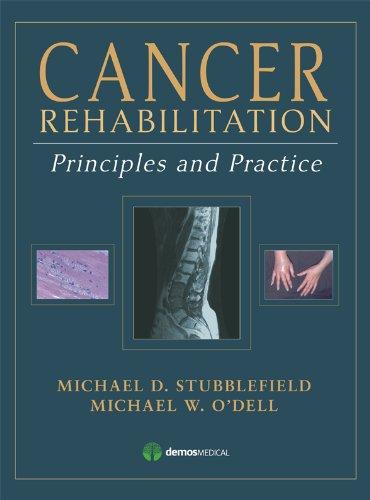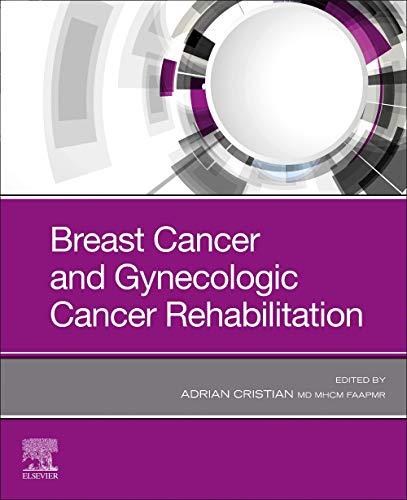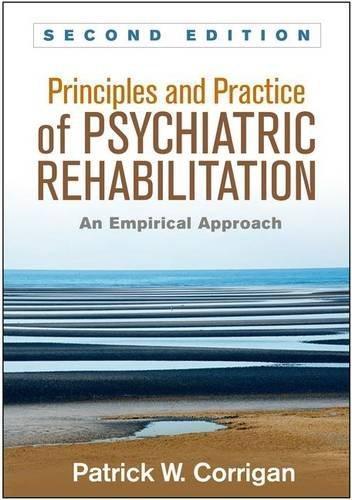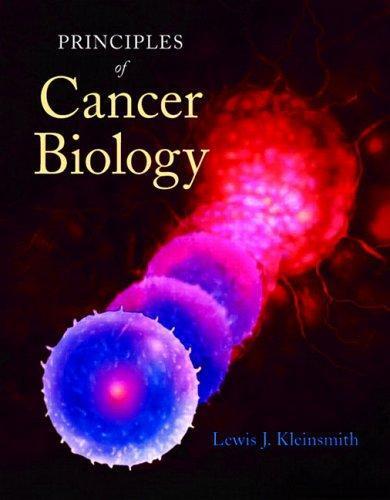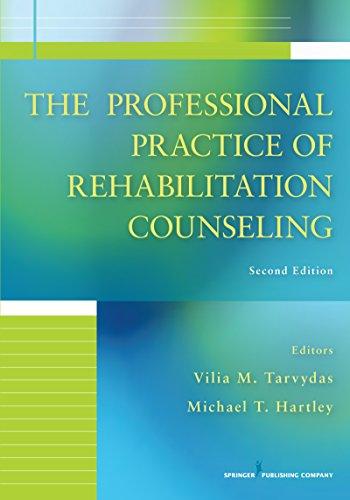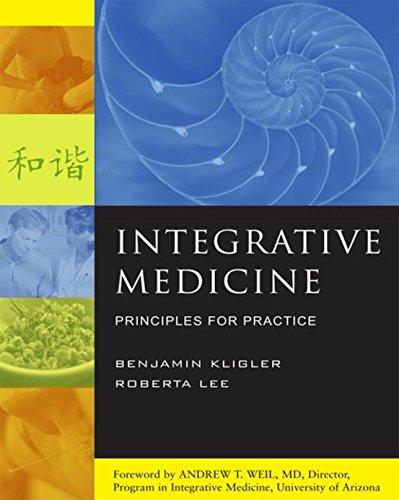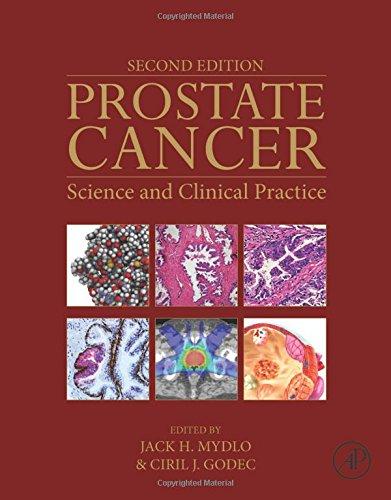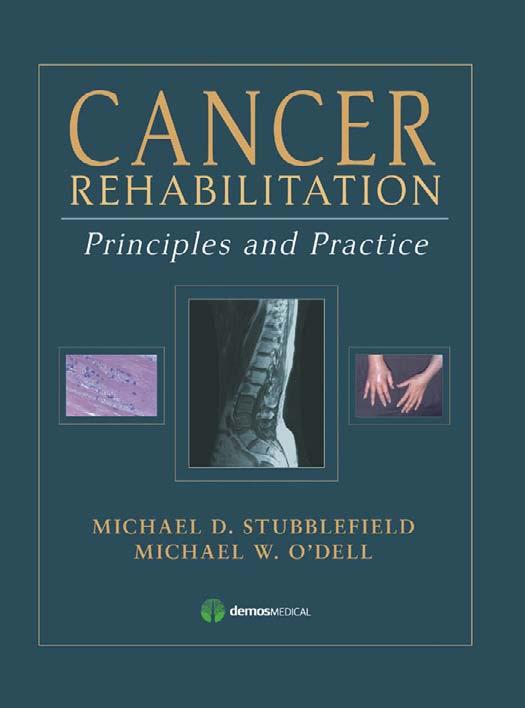Cancer Rehabilitation: Principles and Practice 1st Edition, (Ebook PDF)
Visit to download the full and correct content document: https://ebookmass.com/product/cancer-rehabilitation-principles-and-practice-1st-editio n-ebook-pdf/
More products digital (pdf, epub, mobi) instant download maybe you interests ...
Breast Cancer and Gynecologic Cancer Rehabilitation 1st Edition Adrian Cristian Md (Editor)
https://ebookmass.com/product/breast-cancer-and-gynecologiccancer-rehabilitation-1st-edition-adrian-cristian-md-editor/
Principles and Practice of Psychiatric Rehabilitation, Second Edition – Ebook PDF Version: An – Ebook PDF Version
https://ebookmass.com/product/principles-and-practice-ofpsychiatric-rehabilitation-second-edition-ebook-pdf-version-anebook-pdf-version/
Principles of Cancer Biology 1st Edition
https://ebookmass.com/product/principles-of-cancer-biology-1stedition/
Cosmetic Dermatology: Principles and Practice, Second Edition: Principles & Practice 2nd Edition, (Ebook PDF)
https://ebookmass.com/product/cosmetic-dermatology-principlesand-practice-second-edition-principles-practice-2nd-editionebook-pdf/
Principles and Practice of Clinical Mycology 1st Edition, (Ebook PDF)
https://ebookmass.com/product/principles-and-practice-ofclinical-mycology-1st-edition-ebook-pdf/
The Professional Practice of Rehabilitation Counseling, Second Edition (Ebook PDF)
https://ebookmass.com/product/the-professional-practice-ofrehabilitation-counseling-second-edition-ebook-pdf/
Integrative Medicine: Principles for Practice 1st Edition, (Ebook PDF)
https://ebookmass.com/product/integrative-medicine-principlesfor-practice-1st-edition-ebook-pdf/
Massage Therapy E Book: Principles and Practice (Massage Therapy Principles and Practice) 5th Edition, (Ebook PDF)
https://ebookmass.com/product/massage-therapy-e-book-principlesand-practice-massage-therapy-principles-and-practice-5th-editionebook-pdf/
Prostate Cancer, Second Edition: Science and Clinical Practice Jack H. Mydlo Md Facs
https://ebookmass.com/product/prostate-cancer-second-editionscience-and-clinical-practice-jack-h-mydlo-md-facs/
4.
5.
9.
Joseph J. Disa and Colleen M. McCarthy
10. Principles of Spine Imaging in Cancer
eric Lis and Christopher Mazzone
11.
Jon Lewis and George Krol
12. Cancer Statistics
Melissa M. Center and Ahmedin Jemal II
13.
14.
Heather L. McArthur and Clifford A. Hudis
Alexei Morozov and Susan F. Slovin
15. Evaluation and Treatment of Lung and Bronchus Cancer
Jorge e. Gomez
16. Evaluation and Treatment of Colorectal Cancer
Leonard B. Saltz and Austin G. Duffy
17. Evaluation and Treatment of Melanoma
Jedd D. Wolchok and Yvonne Saenger
18. Evaluation and Treatment of Lymphoma
enrica Marchi, Jasmine Zain, and Owen A. O’Connor
19.
Heather J. Landau and Stephen D. nimer
20. Evaluation and Treatment of Primary Central Nervous System Tumors
Sean A. Grimm and Lisa M. DeAngelis
21. Evaluation and Treatment of Gynecologic Cancer
Meena J. Palayekar and Dennis S. Chi
22.
23.
24.
25.
Laura Locati, Su Hsien Lim, Snehal Patel, and David G. Pfister
Robert Michael Tuttle and Rebecca Leboeuf
Robert G. Maki
Gary C. O’Toole and Patrick J. Boland
26.
Matthew n. Bartels and Megan L. Freeland
Matthew n. Bartels and Marsha Leight
28. Gastrointestinal
James Han, Rebecca G. Smith, Kevin Fox, and Argyrios Stampas
29.
30.
Michelle
32.
Argyrios Stampas, Rebecca G. Smith, Annelise Savodnik, and Kevin Fox
33.
34.
Julie Lin and Amanda Molnar
edward J. Dropcho
IV PAIN IN CANCER
neel Mehta, Amit Mehta, and Amitabh Gulati 39.
40.
42.
Barrie Cassileth, Robin C. Hindery, and Jyothirmai Gubili
NEUROLOGIC AND NEUROMUSCULAR COMPLICATIONS OF
43.
Michael
44.
48.
Louis H. Weimer and Thomas H. Brannagan
edward K. Avila and Sonia K. Sandhu
Justin C. Riutta
56.
Robert W. DePompolo, Julia F. Boysen, Mary J. Scherbring, and David Martin Strick
57.
58.
59.
60.
Lynn H. Gerber and Amanda Molnar
Azeez Farooki and Hanna Chua Rimner
Gary C. O’Toole, Patrick J. Boland, and Maryann Herklotz
63.
65.
Sharlynn M.
69.
70.
71.
Jimmie C. Holland, Talia R.
and Jessica
David William Pruitt and Rajaram nagarajan
Taryn Y. Lee and Sandy B. Ganz
Desiree A. Pardi, Golda B. Widawski, Dory Hottensen, and elizabeth Schack
Barrie R. Cassileth, Robin C. Hindery, and Jyothirmai Gubili
72. Balance and Gait Dysfunction in the Cancer Patient
elizabeth M. Kilgore and Cynthia G. Pineda
73. Cancer-Related Fatigue
Debora Julie Franklin and Lora Packel
74. Communication and Swallowing Dysfunction in the Cancer Patient
Margaret L. Ho
75. Bladder Dysfunction in the Cancer Patient
Todd A. Linsenmeyer and Georgi Guruli
76. Bowel Dysfunction in the Cancer Patient
Susan V. Garstang
77. Cognitive Dysfunction in the Cancer Patient
Tracy L. Veramonti and Christina A. Meyers
78. Activities of Daily Living in the Cancer Patient
Claudine Levy Campbell and Mackenzi Pergolotti
79. Lymphedema in the Cancer Patient
David Martin Strick and Gail Louise Gamble
SPECIAL TOPICS IN CANCER REHAbILITATION
80.
82.
Victoria Blinder and Madhu Mazumdar
83. Health Maintenance and Screening in Cancer Survivors
Kevin C. Oeffinger
Foreword
This textbook represents a milestone.
Lynn H. Gerber, MD
Dr. Howard Rusk, founder of the Rusk Institute of Rehabilitation Medicine, suggested that we needed a “service station” for cancer patients when he spoke at the first Cancer Conference on Rehabilitation Medicine in 1965 (1). In other words, a place where the multiple needs of cancer patients might be met. I credit him with the recognition that the cancer patient is a significant challenge to the health care establishment and would likely best be served in a comprehensive service organization. Others suggested that interdisciplinary efforts from the medical community, the patients, and the public sector would be needed to “reverse the defeatist attitude toward cancer and provide total continuity of care for the patient and for his family and community as well” (2).
Progress toward realizing Dr. Rusk’s recommendations has been very slow. I would offer that we are still not fully there.
Several elements are needed to achieve optimal care for cancer patients. These include their rehabilitation, which makes this textbook an important contribution to the lives of cancer survivors. Cancer survivors and their families are just beginning to articulate their concerns and several priorities have been identified: the need to provide continuity of care, recognizing that care requires a team approach; the importance of quality of life as a desired outcome of treatment; and the
recognition that independence in daily function is a high priority for many cancer survivors.
The field of rehabilitation of the cancer patient received a tremendous boost from the work of Dr. J. Herbert Dietz, Jr., who worked at the Institute of Rehabilitation Medicine, New York University Hospital, and Memorial Hospital for Cancer and Allied Diseases. Dr. Dietz published the first text on rehabilitation for the cancer patient, Rehabilitation Oncology, in 1981 (3). This text was organized with the rehabilitation model in mind, including evaluations of impairments, disability, and societal integration (handicap). He approached the patient from the perspective of treatment goals, including extensive patient and family education (preventive, restorative, supportive, and palliative), and the phase of cancer (preoperative, postoperative, convalescence, and posthospital). He recommended the application of solid methodology in evaluating patients and assessing efficacy of treatment. The aim of treatment was goal-oriented and often vocational. The impact of Dietz’s book on the next generation of oncological rehabilitation specialists was significant. In fact, in my own professional experience, it became clear to me that even without being conscious of it, Dr. Dietz’s approach guided my approach to treating patients. He also offered an evaluation tool, the Dietz Scale, which became a commonly used evaluation tool for use with cancer patients.
Lehmann and colleagues (4) published a remarkable manuscript identifying the needs of patients with cancer diagnoses. They demonstrated that cancer
patients had problems with self-care, mobility, and so on, and were likely to have psychological dysfunction and needed psychological support. They described the kinds of services required and valued by this population and demonstrated that when comprehensive rehabilitation was provided, there was significant clinical improvement. The authors concluded that patients with cancer need comprehensive rehabilitation, that if problems were properly identified and appropriate referrals were made, they did well. This approach presented a rationale for provision of rehabilitation services and a suggestion about which services were most needed for cancer patients. Additional studies supported the usefulness and appropriateness of inpatient rehabilitation (5–8). In fact, patients with brain tumors did as well functionally and had shorter length of hospital stay than those with stroke (9).
An important component of providing appropriate, quality care for cancer patients is good investigational work. Natural history studies, identifying the kinds of problems associated with cancer diagnoses, and clinical trials demonstrating which interventions are effective in reducing or preventing disability are critical resources for meeting the needs of these patients. Specifically, the work of Winningham and colleagues (10,11) demonstrated efficacy of aerobic training in reducing symptoms of cancer fatigue and improving functional outcomes. Dimeo demonstrated that in terms of symptoms, stamina and performance were better in bone marrow transplant recipients who received aerobic training than in those who did not (12). He further demonstrated that those who received a bicycle ergometer in the treatment room during their acute hospitalization for transplant, had improved levels of hemoglobin and white blood cell counts compared with those who did not receive in-room ergometry (13). This helped to establish the usefulness of an aerobic training program for cancer patients, and provided data to support the contention that exercise was safe during cancer treatment and had objective (eg, hematological) as well as subjective benefits.
This textbook reflects what has been learned from many of these studies. It includes results of studies of the natural history of cancer survivorship, from which we have identified problems that patients face and are of interest to them (eg, chemotherapy toxicities, impact of loss of limb, pain management, functional complications of bone marrow transplantation, etc.). It also includes important topics about rehabilitation interventions and effective treatments. For example, we have made great strides in understanding the value of exercise for cancer survivors, and, to some degree, how it works. This has enabled us to provide specific exercise prescriptions.
Cancer rehabilitation specialists have not agreed on standard core sets of evaluations or outcome measures for the cancer patient. Recent progress has been made in using new technologies to reduce the burden of data, such as item response theory, and in the quality of the psychometric properties of patient self-reports. The combination of standard objective measures of strength, range of motion, and other impairments; the use of more sensitive instruments for diagnosis and management (eg, infrared scanning for limb volume, EMG for diagnosis of neuropathy); and the widespread use of measures of symptoms, function, and quality of life, have helped define the necessary components for a comprehensive “metric” for the field. We now need to develop consensus and use these tools. These issues are discussed in this textbook, and several chapters make specific recommendations for the selection of appropriate and useful outcome measures.
Happily, cancer is no longer an acute, lethal illness. In my opinion, it is best thought of as a complex, chronic, and common disorder (14). Conceptually, the model of chronic illness best fits it. Cancers are likely to increase in prevalence as the population ages and the number of survivors increases. It will remain a challenge to treat. The biology of tumors varies considerably. Treatments for the tumor (radiation, surgery, chemotherapy, biologics) and the individual’s response to them vary among patients. The impact of cancer on an individual’s life is often dependent on phenomena not related to the tumor or its treatment, but rather to the individual’s life needs and values. These factors present the health care professional with opportunities for collaborations and continued challenges for which the oncological and rehabilitation communities must coordinate efforts.
These observations have been known to the rehabilitation oncology community and cancer survivors for decades; but only recently has rehabilitation been acknowledged as an important contributor to the health and well-being of cancer patients and survivors. Heretofore, we were called to treat problems that were often at very late stages, such as frozen shoulder or severe lymphedema; or a problem of mobility or transfer needing adaptive equipment. This was made clear to me by the omission of the need for integrating rehabilitation services into the first National Cancer Policy Board report, “Ensuring Quality Cancer Care” (15). Rehabilitation interventions were not part of its recommendations for quality, comprehensive cancer evaluation, and treatment. The board’s second report, “From Cancer Patient to Cancer Survivor: Lost in Transition,” does address these concerns (16). Including rehabilitation interventions in the second report acknowledges the increasingly important role that rehabilitation plays
in the lives of cancer survivors, and cites the evidence establishing efficacy of some rehabilitation treatment.
This textbook represents a milestone. It demonstrates the breadth of topics relevant to rehabilitation of the cancer patient. It also demonstrates that there is much that can be done for the cancer patient and survivor. The comprehensive nature of the content addresses the impairment, disability, and societal integration needs of this population of people. The publication of this text is likely to raise awareness of the advances in our field, the practical approach we offer for evaluating and solving problems of function, and the treatments we can offer our patients.
However, we have only just begun. Much work needs to be done to develop instruments to measure function and reconcile concerns about objective and self-reported measures. We still need to agree which are the best and most appropriate measures to use. Applying the rehabilitation model of impairment, disability, and handicap or the alternative International Classification of Disability, Functioning and Health will provide a consistent framework around which we can evaluate needs and response to treatment.
Efficacy of exercise in relieving some symptoms and improving function in the cancer survivor population has been demonstrated. Other rehabilitation interventions, such as bracing and manual therapy techniques, the use of modalities, complementary and alternative interventions have been used but would benefit from proper clinical trials.
We will need to devise interventions for all domains of the rehabilitation model. Models for delivery of care across the continuum of the phases of cancer and the life stages of survivors from infants to the very old should be evaluated for efficacy and efficiency. That is, we should evaluate the efficacy and accessibility of home health, outpatient, inpatient, and coordinated care services.
More clinical trials should be undertaken to further our goal of providing the best possible outcomes for cancer survivors. We believe the contributions of rehabilitation professionals can help improve and restore function, reduce the burden of disability, and help prevent functional decline; but more evidence is needed to demonstrate this. Achieving these outcomes will enable people who have survived cancer to attain their unique goals and enhance their quality of life. An important step in reaching these goals is to provide quality educational materials and improve access to the scope of rehabilitation practice in this population
of patients. This textbook provides a comprehensive approach to the practice and the knowledge base on which the practice has been constructed. It is our hope that readers will benefit from this and enhance the nature of their practice and, ultimately, improve the lives of cancer patients.
Lynn H. Gerber, MD Professor, Rehabilitation Science Director, Center for the Study of Chronic Illness and Disability College of Health and Human Services
George Mason University Fairfax, Virginia
RefeRenceS
1. Switzer ME. Clinical Conference on Cancer, In: Rehabilitation of the Cancer Patient. Clark RL, Moreton RD, Healey JC, et al., eds. Chicago: Year Book Medical Publishers, Inc.; 1972.
2. Clark RL. Introduction. In: Clark RL, Moreton RD, Healey JC, et al., eds. Rehabilitation of the Cancer Patient. Chicago: Year Book Medical Publishers, Inc.; 1972.
3. Deitz, JH, Jr. Rehabilitation Oncology. New York: Wiley & Sons; 1981.
4. Lehmann JF, DeLisa JA, Warren CG, et al. Cancer rehabilitation: assessment of need, development and evaluation of a model of care. Arch Phys Med Rehabil. 1978;59:410–419.
5. Marciniak CM, Sliwa JA, Spill G, et al. Functional outcome following rehabilitation of the cancer patient. Arch Phys Med Rehabil. 1996;77:54–57.
6. Huang ME, Wartella JE, Kreutzer JS. Functional outcomes and quality of life in patients with brain tumors: a preliminary report. Arch Phys Med Rehabil. 2001;82:1540–1546.
7. Cole RP, Scialla SJ, Bednarz L. Functional recovery in cancer rehabilitation. Arch Phys Med Rehabil. 2000; 81:623–627.
8. O’Dell MW, Barr K, Spanier D, et al. Functional outcomes of inpatient rehabilitation in persons with brain tumor. Arch Phys Med Rehabil. 1998;79:1530–1534.
9. Huang ME, Cifu DX, Keeper–Marcus L. Functional outcomes after brain tumor and acute stroke: a comparative analysis. Arch Phys Med Rehabil. 1998;79:1286–1290.
10. Winningham ML, Nail LM, Burke MD, et al. Fatigue and the cancer experience. Oncol Nurs Forum. 1994;21:23–36.
11. MacVicar MG, Winningham ML, Nickel JL. Effects of aerobic interval training of cancer patients’ functional capacity. Nursing Res. 1989;38:348–351.
12. Dimeo F, Rumberger BG, Keul J. Aerobic exercise training for cancer fatigue. Med Sci Sports Exer. 1998;4:475–478.
13. Dimeo FC, Tilmann MH, Bertz H, et al. Aerobic exercise in the rehabilitation of cancer patients after high dose chemotherapy and autologous peripheral stem cell transplant. Cancer 1997;79:1717–1722.
14. Gerber LH. Cancer rehabilitation into the future. Cancer 2001;92(4Suppl):975–979.
15. Hewitt, M, Simone,. Ensuring Quality Cancer Care. Washington DC: National Cancer Policy Board, 1999.
16. Hewitt, M. From Cancer Patient to Cancer Survivor: Lost in Transition. Washington DC: National Cancer Policy Board, 2005.
This page intentionally left blank
Contributors
Laura Andima, MD
Staff Anesthesiologist
VA Boston Healthcare System
Instructor Anesthesiology
Harvard Medical School
Cambridge, Massachusetts
Edward K. Avila, DO
Assistant Attending Neurologist Department of Neurology
Memorial Sloan-Kettering Cancer Center
New York, New York
Matthew N. Bartels, MD, MPH
John E. Dewey Associate Professor of Clinical Rehabilitation Medicine
Department of Rehabilitation Medicine
Columbia College of Physicians and Surgeons
Columbia University
New York, New York
Mark H. Bilsky, MD
Associate Attending Surgeon Department of Neurosurgery
Memorial Sloan-Kettering Cancer Center
Associate Professor Department of Neurological Surgery
Weill Cornell Medical College
New York, New York
Victoria Blinder, MD, MSc Department of Epidemiology and Biostatistics Health Outcomes Research Group Department of Medicine Breast Cancer Medicine Service Memorial Sloan-Kettering Cancer Center New York, New York
Patrick J. Boland, MD Attending Orthopaedic Surgeon Orthopaedic Service Department of Surgery Memorial Sloan-Kettering Medical Center New York, New York
Julia F. Boysen, PT Assistant Supervisor PM&R Rochester Methodist Hospital Rochester, Minnesota
Thomas H. Brannagan, III, MD
Associate Professor of Clinical Neurology Director, Peripheral Neuropathy Center Columbia University College of Physicians and Surgeons Co-director, EMG Laboratory
New York-Presbyterian Hospital New York, New York
Claudine Levy Campbell, OTR/L
Chief of Occupational Therapy
Rehabilitation Medicine Service
Department of Neurology
Memorial Sloan-Kettering Medical Center
New York, New York
Kristen E. Cardamone, DO
Fellow, Orthopedic Sports and Spine Rehabilitation
Beth Israel Medical Center
Continuum Center for Health and Healing/Spine Institute of New York
New York, New York
Barrie R. Cassileth, MS, PhD
Chief, Integrative Medicine Service
Department of Medicine
Memorial Sloan-Kettering Cancer Center New York, New York
Melissa M. Center, MPH
Epidemiologist
Surveillance and Health Policy Research
American Cancer Society Atlanta, Georgia
Leighton Chan, MD, PhD
Chief, Rehabilitation Medicine Department
National Institutes of Health Bethesda, Maryland
Andrea L. Cheville, MD, MSCE
Associate Professor of Physical Medicine and Rehabilitation
Mayo Clinic
Rochester, Minnesota
Dennis S. Chi, MD
Gynecology Service
Department of Surgery
Memorial Sloan-Kettering Cancer Center
New York, New York
Kenneth Cubert, MD
Associate Attending Anesthesiologist Pain Service
Department of Anesthesiology and Critical Care Medicine
Memorial Sloan-Kettering Cancer Center
New York, New York
Edward J. Cupler, MD
Associate Professor
Department of Neurology Director, Neuromuscular Disease Center
Oregon Health and Science University
Portland, Oregon
Christian M. Custodio, MD
Assistant Attending Physiatrist
Rehabilitation Medicine Service Department of Neurology
Memorial Sloan-Kettering Cancer Center New York, New York
Lisa M. DeAngelis, MD Chair Department of Neurology
Memorial Sloan-Kettering Cancer Center New York, New York
Robert W. DePompolo, MD Director
Cancer Rehabilitation Program Mayo Clinic Rochester, Minnesota
Tim Dillingham, MD Professor and Chairman Physical Medicine and Rehabilitation Medical College of Wisconsin Milwaukee, Wisconsin
Joseph J. Disa, MD
Associate Attending Surgeon Plastic and Reconstructive Surgery Service Memorial Sloan-Kettering Cancer Center New York, New York
Don S. Dizon, MD, FACP Assistant Professor Department of Obstetrics/Gynecology and Medicine
Warren Alpert Medical School Brown University Director, Medical Oncology and Integrative Care Co-Director, Center for Sexuality, Intimacy and Fertility Program in Women’s Oncology Women and Infants Hospital Providence, Rhode Island
Edward J. Dropcho, MD Professor, Department of Neurology Director, Neuro-Oncology Program Indiana University Medical Center Indianapolis, Indiana
Austin Duffy, MD Clinical Fellow
Medical Oncology Branch
National Cancer Institute Bethesda, Maryland
Erin Embry, MS CCC-SLP
Instructor, Clinical Supervisor, Graduate Advisor Department of Speech-Language Pathology and Audiology
New York University
New York, New York
Noel G. Espiritu, DPT
Chief Physical Therapist Rehabilitation Medicine Service Department of Neurology
Memorial Sloan-Kettering Cancer Center New York, New York
Mill Etienne, MD Fellow, Division of Epileptology Department of Neurology Columbia University New York, New York
Azeez Farooki, MD
Assistant Attending Physician Endocrinology Service Department of Medicine Memorial Sloan-Kettering Cancer Center
New York, New York
Mark A. Ferrante MD Associate Professor Co-Director, Neuromuscular Division Director, EMG Laboratory Department of Neurology University of Texas Health Science Center San Antonio, Texas
Teresa W. Fitzpatrick, PT, MBA Rehabilitation Manager Rehabilitation Medicine Service Department of Neurology
Memorial Sloan-Kettering Cancer Center New York, New York
Kevin Fox, MD
Marianne T. and Robert J. MacDonald Professor in Breast Cancer Care Excellence Department of Medicine
Hospital of the University of Pennsylvania Philadelphia, Pennsylvania
Debora Julie Franklin, PhD, MD
Director Cancer Rehabilitation
Assistant Professor Department of Rehabilitation Medicine
Thomas Jefferson University Philadelphia, Pennsylvania
Stacey Franz, DO, MSPT Fellow, Musculoskeletal Medicine, Interventional Spine Care, Sports Medicine & Pain Management Kessler Institute for Rehabilitation University of Medicine and Dentistry of New Jersey Newark, New Jersey
Mark A. Frattini, Md, PhD Assistant Member Department of Medicine Memorial Sloan-Kettering Medical Center New York, New York
Megan L. Freeland, PT, DPT Physical Therapist Rehabilitation Medicine Service Department of Neurology Memorial Sloan-Kettering Cancer Center New York, New York
Gail Louise Gamble, MD Medical Director Cancer Rehabilitation Rehabilitation Institute of Chicago Chicago, Illinois
Sandy B. Ganz, PT, DSc, GCS Director of Rehabiliation Amsterdam Nursing Home New York, New York
Susan V. Garstang, MD Assistant Professor Department of Physical Medicine and Rehabilitation University of Medicine and Dentistry of New Jersey Newark, New Jersey
Lynn H. Gerber, MD Director, Center for Chronic Illness and Disability Department of Global and Community Health College of Health and Human Services George Mason University Fairfax, Virginia
Jorge E. Gomez, MD Assistant Professor of Medicine
UM Sylvester Comprehensive Cancer Center Miller School of Medicine University of Miami Miami, Florida
Clifton L. Gooch, MD
Professor and Chairman Department of Neurology
University of South Florida College of Medicine Tampa, Florida
Eric Graf
Senior Research Assistant Neuromuscular Disease Center
Oregon Health and Sciences University Portland, Oregon
Sean A. Grimm, MD
Assistant Professor of Neurology Feinberg School of Medicine Northwestern University Chicago, Illinois
Jyothirmai Gubili, MS
Assistant Editor
Integrative Medicine Service
Memorial Sloan-Kettering Cancer Center New York, New York
Amitabh Gulati, MD
Assistant Attending Anesthesiologist
Pain Service
Department of Anesthesiology and Critical Care Medicine
Memorial Sloan-Kettering Cancer Center
New York, New York
Sakir Humayun Gultekin
Assistant Professor Department of Pathology
Director, Neuromuscular Pathology Laboratory
Oregon Health and Science University Portland, Oregon
Georgi Guruli, MD, PhD
Associate Professor
Director of Urologic Oncology Department of Surgery
Virginia Commonwealth University School of Medicine
Richmond, Virginia
James Han, MD
Resident Physician
Department of Physical Medicine and Rehabilitation
Hospital of the University of Pennsylvania Philadelphia, Pennsylvania
Maryann Herklotz, PT Assistant Chief Physical Therapist Rehabilitation Medicine Service Department of Neurology
Memorial Sloan-Kettering Cancer Center New York, New York
Robin C. Hindery, MS Medical Writer Integrative Medicine Service Department of Medicine
Memorial Sloan-Kettering Cancer Center New York, New York
Margaret L. Ho, MA, CCC-SLP Supervisor, Speech and Swallowing Services Head and Neck Service Department of Surgery
Memorial Sloan-Kettering Cancer Center New York, New York
Jimmie C. Holland, MD
Wayne E. Chapman Chair in Psychiatric Oncology Attending Psychiatrist Department of Psychiatry and Behavioral Sciences
Memorial Sloan-Kettering Cancer Center New York, New York
Dory Hottensen, LCSW Senior Social Worker, Palliative Care Department of Social Work New York-Presbyterian Hospital Weill Cornell Medical Center New York, New York
Clifford A. Hudis, MD Chief, Breast Cancer Medicine Service Department of Medicine
Memorial Sloan-Kettering Cancer Center New York, New York
Ahmedin Jemal, DVM, PhD Department of Epidemiology and Surveillance Research
American Cancer Society Atlanta, Georgia
Juan Miguel Jimenez-Andrade, PhD Research Assistant Professor Department of Pharmacology University of Arizona Tucson, Arizona
C. George Kevorkian, MD
Associate Professor and Vice Chair
Department of Physical Medicine and Rehabilitation
Baylor College of Medicine
Chief of Service
Department of Physical Medicine and Rehabilitation
St. Luke’s Episcopal Hospital
Houston, Texas
Juliana Khowong, MD
Clinical Instructor
Department of Rehabilitation Medicine
Columbia University College of Physicians and Surgeons
New York, New York
Elizabeth M. Kilgore, MD, MS, FAAPM&R
Assistant Professor of Clinical Rehabilitation Medicine
Georgetown University Medical Center Director, Cancer Rehabilitation Program
National Rehabilitation Hospital
Washington, DC
Tari A. King, MD
Assistant Attending Surgeon Breast Service
Department of Surgery
Jeanne A. Petnek Junior Faculty Chair
Memorial Sloan-Kettering Cancer Center
New York, New York
Guenther Koehne, MD, PhD
Attending Physician
Allogeneic Bone Marrow Transplantation Service
Department of Medicine
Memorial Sloan-Kettering Cancer Center
Assistant Professor
Weill Cornell Medical College of Cornell University
New York, New York
George Krol, MD
Attending Neuroradiologist
Department of Radiology
Neuroradiology Service
Memorial Sloan-Kettering Cancer Center
Professor of Clinical Radiology
Weill Cornell Medical College of Cornell University
New York, New York
Michael Krychman, MD, FACOG
Medical Director
The Sexual Medicine Center at Hoag
Executive Director
The Southern California Center for Sexual Health and Survivorship Medicine
Newport Beach, California
Associate Clinical Professor
University of Southern California Los Angeles, California
Heather J. Landau, MD
Assistant Attending Hematology Service Department of Medicine
Memorial Sloan-Kettering Cancer Center New York, New York
Christine Laviano, OTR/L
Head Occupational Therapist Acute Care
Rehabilitation Medicine Service Department of Neurology NewYork-Presbyterian Hospital Columbia University Medical Center New York, New York
Rebecca Leboeuf, MD
Assistant Professor of Medicine
Assistant Attending Physician Endocrinology Service Department of Medicine
Memorial Sloan-Kettering Cancer Center New York, New York
Taryn Y. Lee, MD
Assistant Professor of Medicine Division of Geriatrics and Gerontology
Weill Cornell Medical College of Cornell University
Assistant Attending Physician
New York-Presbyterian Hospital New York, New York
Marsha Leight, PT
Senior Physical Therapist
Rehabilitation Medicine Service Department of Neurology
Memorial Sloan-Kettering Cancer Center New York, New York
Jon Lewis, MD
Neuroradiology Fellow
Department of Radiology
Neuroradiology Service
New York-Presbyterian Medical Center
Memorial Sloan-Kettering Cancer Center
New York, New York
Su Hsien Lim, MD
Medical Oncology and Hematology, PC
Yale-New Haven Shoreline Medical Center
Guilford, Connecticut
C. David Lin, MD
Ida and Theo Rossi Di Montelera Assistant Professor of Rehabilitation Medicine Department of Rehabilitation
Weill Cornell Medical College of Cornell University Assistant Attending
New York-Presbyterian Hospital
Weill Cornell Medical Center
New York, New York
Julie Lin, MD
Assistant Attending Physiatrist Physiatry Department
Hospital for Special Surgery Assistant Professor Department of Rehabilitation Medicine
New York-Presbyterian Hospital
New York, New York
Todd A. Linsenmeyer, MD
Director of Urology
Kessler Institute for Rehabilitation
West Orange, New Jersey
Professor Department of Surgery
Professor
Department of Physical Medicine and Rehabilitation University of Medicine and Dentistry of New Jersey
Newark, New Jersey
Eric Lis, MD
Associate Attending Neuroradiologist
Director of Neurointerventional Radiology Department of Radiology
Neuroradiology Service
Memorial Sloan-Kettering Cancer Center New York, New York
Laura Locati, MD Instituto Nazionale Tumori Department of Medical Oncology Milan, Italy
Paul Magda, DO Clinical Assistant Professor of Neurology Department of Neurology St. Vincent’s Catholic Medical Center-Manhattan New York, New York
Robert G. Maki, MD, PhD Associate Member and Co-Director Adult Sarcoma Program Department of Medicine
Memorial Sloan-Kettering Cancer Center New York, New York
Vicky Makker Assistant Member Gynecologic Medical Oncology Service Department of Medicine
Memorial Sloan-Kettering Cancer Center New York, New York
Patrick W. Mantyh, PhD Professor Department of Pharmacology University of Arizona Tucson, Arizona
Enrica Marchi, MD Herbert Irving Comprehensive Cancer Center New York, New York
Madhu Mazumdar, PhD, MA, MS Professor of Biostatistics in Public Health Chief, Division of Biostatistics and Epidemiology Department of Public Health
Weill Cornell Medical College of Cornell University New York, New York
Christopher Mazzone Neuroradiology Research Assistant Department of Radiology
Neuroradiology Service
Memorial Sloan-Kettering Cancer Center New York, New York
Heather L. McArthur, MD, MPH Clinical Research Fellow Breast Cancer Medicine Service Department of Medicine
Memorial Sloan-Kettering Cancer Center New York, New York
Colleen M. McCarthy, MD, MS
Assistant Attending Surgeon Plastic and Reconstructive Service Department of Surgery
Memorial Sloan-Kettering Cancer Center New York, New York
William McKinley, MD
Director, Spinal Cord Injury Medicine Professor of Physical Medicine and Rehabilitation
Virginia Commonwealth University Medical Center Richmond, Virginia
Sarah A. McLaughlin, MD
Assistant Professor of Surgery Department of Surgery Mayo Clinic Jacksonville, Florida
Veronica McLymont, MD, RD, CDN
Director Food and Nutrition Services
Memorial Sloan-Kettering Cancer Center New York, New York
Amit B. Mehta, MD
Anesthesiologist and Interventional Pain Physician
Premier Pain Specialists Co-founder Co-director of the Division of Pain Management at MacNeal Hospital Chicago, Berwyn, and Schaumburg, Illinois
Neel Mehta, MD
Resident Department of Anesthesiology Weill Cornell Medical College of Cornell University New York, New York
Christina A. Meyers, PhD, ABPP Professor and Chief
Section of Neurophysiology
M.D. Anderson Cancer Center Houston, Texas
Amanda Molnar, MSPT
Senior Physical Therapist
Rehabilitation Medicine Service Department of Neurology
Memorial Sloan-Kettering Cancer Center
New York, New York
Alexei Morozov, MD, PhD Fellow, Hermatology-Oncology Department of Medicine
Memorial Sloan-Kettering Cancer Center New York, New York
Carol D. Morris, MD, MS Associate Attending Surgeon Orthopedic Surgery Service Department of Surgery
Memorial Sloan-Kettering Cancer Center New York, New York
Natalie Moryl, MD Assistant Attending Pain and Palliative Care Service Department of Medicine
Memorial Sloan-Kettering Cancer Center New York, New York
Rajaram Nagarajan, MD, MS Assistant Professor of Pediatrics Department of Pediatrics Cincinnati Children’s Hospital Medical Center University of Cincinnati College of Medicine Cincinnati, Ohio
Stephen D. Nimer, MD Chief, Hematology Service Vice Chair, Faculty Development Department of Medicine
Alfred Sloan Chair
Memorial Sloan-Kettering Cancer Center New York, New York
Owen A. O’Connor, MD, PhD Director Lymphoid Development and Malignancy Program Herbert Irving Comprehensive Cancer Center Chief, Lymphoma Service College of Physicians and Surgeons
New York-Presbyterian Hospital Columbia University New York, New York
Michael W. O’Dell, MD Chief of Clinical Services Department of Rehabilitation Medicine
New York-Presbyterian Hospital
Weill Cornell Medical Center Professor of Clinical Rehabilitation Medicine
Weill Cornell Medical College of Cornell University New York, New York
Kristen M. O’Dwyer, MD
Leukemia Service
Department of Medicine
Memorial Sloan-Kettering Cancer Center
New York, New York
Kevin C. Oeffinger, MD
Attending and Member
Director
Adult Long Term Follow Up Program Departments of Pediatrics and Medicine
Memorial Sloan-Kettering Cancer Center
New York, New York
Gary C. O’Toole, BSc, MCh, FRCS
Consultant, Orthopaedic Surgeon
St. Vincent’s University Hospital
Cappagh National Orthopaedic Hospital Dublin, Ireland
Lora Packel, MS, PT, CCS
Assistant Professor Department of Physical Therapy University of the Sciences Philadelphia, Pennsylvania
Meena J. Palayekar, MD
Department of Obstetrics and Gynecology
Saint Peter’s University Hospital
New Brunswick, New Jersey
Desiree A. Pardi, MD, PhD
Assistant Professor of Medicine
Division of Geriatrics and Gerontology
Weill Cornell Medical College of Cornell University Director, Palliative Care Service
New York-Presbyterian Hospital New York, New York
Rebecca A. Parks, MS, OTR/L, BCP, FAOTA
U.S. Public Health Service
National Institutes of Health Bethesda, Maryland
Snehal Patel, MD
Attending Surgeon Head and Neck Service Department of Surgery
Memorial Sloan-Kettering Cancer Center
New York, New York
Mackenzi Pergolotti, MS, OTR/L Assistant Chief of Occupational Therapy Rehabilitation Medicine Service Department of Neurology Memorial Sloan-Kettering Cancer Center New York, New York
Lucinda Pfalzer, PhD, PT, FACSM Department of Physical Therapy University of Michigan-Flint Flint, Michigan
David G. Pfister, MD Member and Attending Physician Chief, Head and Neck Medical Oncology Co-leader, Head and Neck Cancer Disease Management Team
Memorial Sloan-Kettering Cancer Center New York, New York
Cynthia G. Pineda, MD, FAAPM&R Assistant Profesor of Clinical Rehabilitation Medicine
Georgetown University Medical Center Staff Physiatrist National Rehabilitation Hospital Washington, DC
Tara Post, OTR/L, ATP Supervisor, Occupational Therapy Department of Rehabilitation Medicine New York-Presbyterian Hospital Weill Cornell Medical Center New York, New York
David William Pruitt, MD Assistant Professor, Clinical Pediatrics and Clinical PMSR Department of Pediatrics Cincinnati Children’s Hospital Medical Center University of Cincinnati College of Medicine Cincinnati, Ohio
Hanna Chua Rimner, BScPT Senior Physical Therapist Rehabilitation Medicine Service Department of Neurology
Memorial Sloan-Kettering Cancer Center New York, New York
Justin C. Riutta, MD, FAAPMR Director of Lymphedema and Breast Cancer Rehabilitation
William Beaumont Hospital
Royal Oak, Michigan
Corey Rothrock, MD
Clinical Instructor, Orthopedic Surgery
Musculoskeletal Oncology
Norton Cancer Institute
University of Louisville
Louisville, Kentucky
Yvonne Saenger, MD
Assistant Professor
Department of Medicine, Hematology and Medical Oncology
Mount Sinai School of Medicine
New York, New York
Leonard B. Saltz, MD
Attending Oncologist
Gastrointestinal Oncology Service
Department of Medicine
Memorial Sloan-Kettering Cancer Center
Professor of Medicine
Weill Cornell Medical College of Cornell University
New York, New York
Sonia K. Sandhu, DO
Assistant Professor
Co-Director, Intraoperative Neurophysiologic Monitoring
Department of Neurology and Neuroscience
Weill Cornell Medical College of Cornell University
New York-Presbyterian Hospital
New York, New York
Annelise Savodnik, PT, MPT, CLT
Senior Physical Therapist
Rehabilitation Medicine Service
Department of Neurology
Memorial Sloan-Kettering Cancer Center
New York, New York
Oksana Sayko, MD
Assistant Professor
Department of Physical Medicine and Rehabilitation
Medical College of Wisconsin
Milwaukee, Wisconsin
Elizabeth Schack, RN, GNP, CNS
Nurse Practitioner
Palliative Care Service
New York-Presbyterian Hospital
Weill Cornell Medical Center
New York, New York
Mary J. Scherbring, CNS, RN
Prior Clinical Nurse Specialist on Cancer and Adaptation Team
Mayo Clinic
Rochester, Minnesota
Eric Schwabe, PT, MS
Supervisor, Physical Therapy
The Sue and John L. Weinberg Inpatient Rehabilitation Center
Department of Rehabilitation
New York-Presbyterian Hospital
Weill Cornell Medical Center
New York, New York
Julie K. Silver, MD
Assistant Professor
Harvard Medical School Chief Editor of Books
Harvard Health Publications Countway Library Boston, Massachusetts
Susan F. Slovin, MD, PhD
Associate Attending Oncologist Genitourinary Oncology Service Department of Medicine
Memorial Sloan-Kettering Cancer Center New York, New York
Rebecca G. Smith, MD, MS
Assistant Professor and Chief, Division of Cancer Rehabilitation
Department of Physical Medicine and Rehabilitation Hospital of the University of Pennsylvania Philadelphia, Pennsylvania
Beth Solomon, MS, CCC-SLP
Chief, Speech Language Pathology Section Rehabilitation Medicine Department National Institutes of Health Bethesda, Maryland
David Spriggs, MD Head, Division of Solid Tumor Oncology
Winthrop Rockefeller Chair in Medical Oncology
Memorial Sloan-Kettering Cancer Center
New York, New York
Argyrios Stampas, MD
Resident Physician
Department of Physical Medicine and Rehabilitation Hospital of the University of Pennsylvania Philadelphia, Pennsylvania
Michelle Stern, MD
Assistant Clinical Professor
Columbia University College of Physicians and Surgeons
New York-Presbyterian Hospital
New York, New York
Jessica Stiles, MD
Department of Psychiatry and Behavioral Sciences
Memorial Sloan Kettering Cancer Center
New York, New York
David Martin Strick, PhD, PT
Senior Lymphedema Therapist
Mayo Clinic
Rochester, Minnesota
Michael D. Stubblefield, MD
Assistant Attending Physiatrist
Rehabilitation Medicine Service
Department of Neurology
Memorial Sloan-Kettering Cancer Center
Assistant Professor of Rehabilitation Medicine
Weill Cornell Medical College of Cornell University
New York, New York
Ping Sun, DPT
Senior Physical Therapist
Rehabilitation Medicine Service
Department of Neurology
Memorial Sloan-Kettering Cancer Center
New York, New York
Sharlynn M. Tuohy, PT, MBA
Assistant Chief Physical Therapist
Rehabilitation Medicine Service
Department of Neurology
Memorial Sloan-Kettering Cancer Center
New York, New York
Robert Michael Tuttle, MD
Professor of Medicine
Attending Physician
Endocrinology Service
Department of Medicine
Memorial Sloan-Kettering Cancer Center
New York, New York
Tracy L. Veramonti, PhD
Neuropsychologist
The Institute for Rehabilitation and Research
Memorial Hermann Hospital
Clinical Assistant Professor
Department of Physical Medicine and Rehabilitation
Baylor College of Medicine
Houston, Texas
Louis H. Weimer, MD
Associate Clinical Professor of Neurology Director, EMG laboratory
Co-director, Columbia Neuropathy Research Center
Columbia University College of Physicians and Surgeons
New York, New York
Talia R. Weiss, MD
Department of Psychiatry and Behavioral Sciences
Memorial Sloan-Kettering Cancer Center
New York, New York
Golda B. Widawski, PT, MPT
Senior Physical Therapist Department of Rehabilitation Medicine
New York-Presbyterian Hospital
Weill Cornell Medical Center
New York, New York
Jill R. Wing, PT, DPT
Assistant Chief Physical Therapist
Rehabilitation Medicine Service Department of Neurology
Memorial Sloan-Kettering Cancer Center
New York, New York
Jedd D. Wolchok, MD, PhD
Associate Attending Melanoma and Sarcoma Service Department of Medicine
Memorial Sloan-Kettering Cancer Center
New York, New York
Yoshiya Yamada, MD, FRCPC
Assistant Attending Radiation Oncologist Department of Radiation Oncology
Memorial Sloan-Kettering Cancer Center
New York, New York
David S. Younger, MD
Chief of Neuromuscular Diseases
Associate Clinical Professor Department of Neurology
New York University School of Medicine
New York, New York
Jasmine Zain, MD
Assistant Clinical Professor
Columbia University Medical Center
New York, New York
